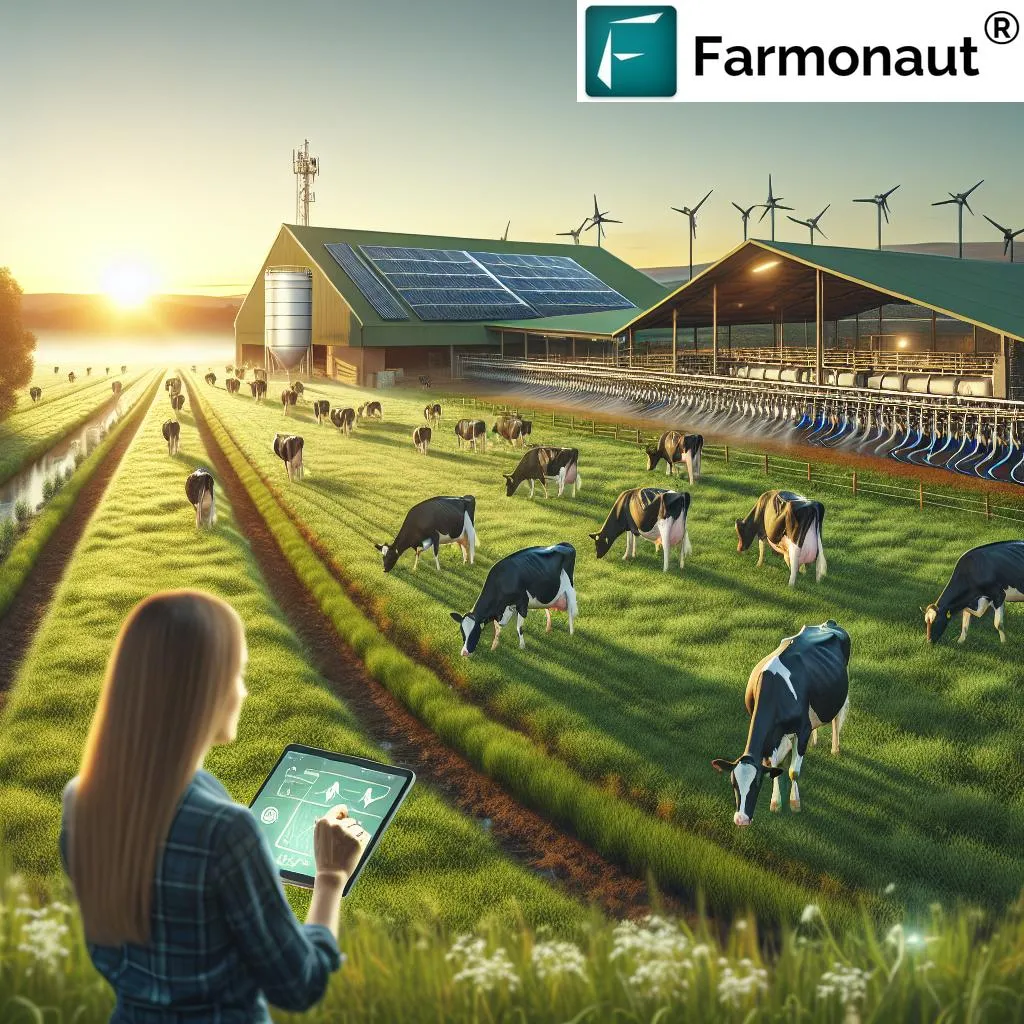In the quest for sustainable agriculture, dairy farms worldwide are grappling with the challenge of reducing carbon emissions. A recent study published in *Agriculture* offers promising insights into how smart farming technology can boost carbon efficiency and economies of scale in the dairy sector. Led by Xiuyi Shi from the College of Economics and Management at Northeast Forestry University in China, the research provides a roadmap for dairy farms to enhance their environmental performance while improving profitability.
The study, based on field survey data from Chinese dairy farms, employs a robust empirical approach to evaluate the impact of smart farming technology on economies of scale. Using methods like endogenous switching regression, two-stage least squares, and propensity score matching, the researchers found that smart farming technology has a direct and positive influence on economies of scale. This effect becomes even more pronounced as farm size increases.
“Smart farming technology not only directly enhances carbon efficiency but also does so indirectly by facilitating the expansion of production scale and reducing unit costs,” Shi explains. This dual benefit is a game-changer for the agriculture sector, offering a pathway to both environmental sustainability and economic viability.
One of the most significant findings is that economies of scale serve as a partial mediator in the relationship between smart farming technology and carbon efficiency. This means that as farms adopt smart technologies, they can produce more efficiently, reducing their carbon footprint per unit of output. The study also highlights the crucial role of government regulation in strengthening this mediating pathway. By standardizing production practices, offering policy incentives, and guiding technology application, governments can help dairy farms maximize the benefits of smart farming.
The commercial implications of this research are substantial. For dairy farms, adopting smart farming technologies can lead to significant cost savings and improved competitiveness. As consumer demand for sustainably produced dairy products grows, farms that can demonstrate both economic and environmental efficiency will be well-positioned to capture market share.
The study also underscores the importance of institutional support and training programs. By investing in these areas, governments and industry stakeholders can accelerate the adoption of smart farming technologies, driving the transition toward low-carbon and sustainable agricultural development.
As the agriculture sector looks to the future, this research provides a clear direction for how smart farming technologies can be leveraged to achieve both economic and environmental goals. By embracing these innovations, dairy farms can pave the way for a more sustainable and profitable future.

